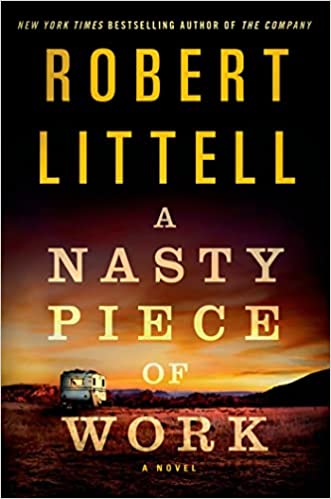A Nasty Piece of Work
Tags: crime-fiction, detective-fiction,
The plot was good enough, but this one fell short on several levels, reading like a journeyman’s immitation of a John D. MacDonald novel. I didn’t like the strained smart-guy dialog, the wisecracks that fell flat or the banter between main character Lemuel Gunn and his girl Friday, aka Ornella Neppi. Much of the humor and wit just wasn’t that funny, though it might appeal to an older generation. Neither Gunn nor Neppi came off as fully-formed characters worth caring about until the very end.

I didn’t feel like the book lived up to the high praise on the back cover. Littell is generally known for his spy novels, and perhaps those are, as Alan Cheuse remarks, the work of a gifted creator of intelligent entertainment. But this book, a step outside his genre of choice, is not the “instant classic” another reviewer proclaims. Problems with characters, dialog, and logic often detracted from an otherwise strong plot.
Though the story takes place in New Mexico, Arizona, and Nevada, many of the characters talk like they’re from New Jersey–even the Mexicans. Another nagging problem was characters divulging information too readily. Would a top-flight criminal defense lawyer really tell someone he’d just met that his client was a Mafia turncoat in the witness protection program? Would a young woman tell a detective she’d known for all of five minutes that she was passing secret messages between a Mafia boss and a thug in hiding–and then divulge the contents of those messages?
Finally, the reader does not need a detailed report from the main character every time his girlfriend’s nipples show through her blouse, or when her supple thigh emerges from the slit of her skirt, neither of which should be happening during the climactic confrontation with the villain. For God’s sake, that’s not what the protagonist should be looking at when he’s about to get his brains blown out.
The ending is quite strong, and the plot is suspenseful enough to keep you engaged, despite the problems listed above. When Gunn and Neppi finally emerge as full-fledged characters in the final chapters, you can’t help but wish they’d had that depth and color all along.